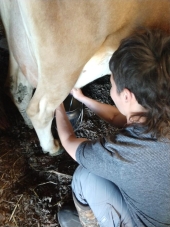Lucrecia Anderson wrote:It reflects the values and beliefs of the people in this community and if some don't like it they don't need to live in this community (because they sure as heck aren't from here anyway).
I wouldn't make that assumption. Sometimes, people find themselves at odds with the values of where they are from. Maybe they leave, maybe there are reasons why they do not. In any case, homogeneity of values can be taken too far, to the point of xenophobic tribalism.
Chris Kott wrote:"Adapting morally" to a survival situation is code for letting your morality lapse when necessary to do distasteful things in order to survive.
In that sort of situation, we have already failed for decades, and failed to set up any kind of actual survival infrastructure; all we would have left is a fight over what would prove ultimately to be too few emergency supplies.
So how much does morality mean to each of us? Does it mean enough to stop playing around with survivalist and prepping mentalities so that we can get on with the task of making society resilient?
-CK
As I see it, we are moving in the wrong direction. The Internet has allowed people to see the wide diversity of viewpoints in this world, but it has also allowed them to see where the most like-minded people live, and migrate there, creating isolationist ideological "tribes." Correct me if I am wrong, but do not the "zombie apocalypse" type of preppers think of the "zombies" as people unlike themselves, culturally, ideologically, or whatever? When we see a bakery refusing to
sell a wedding cake to a same-sex couple, could we count on the owners of that bakery to help the same-sex couple in a disaster, or join with them to struggle for common survival?









